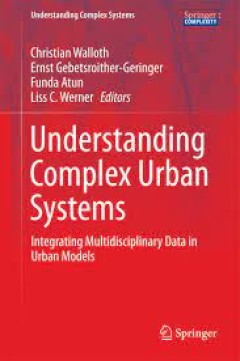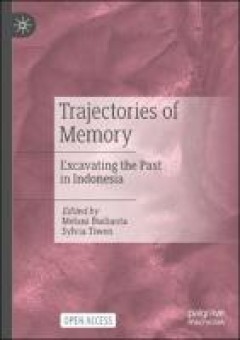Filter by
Conductors, semiconductors, superconductors : an introduction to solid-state …
This compact undergraduate textbook provides a concise yet thorough introduction to the fundamentals of solid-state physics, while also briefly discussing the historical context surrounding key scholars in the field. The vivid explanations and unique didactic approach adopted in the book aim to generate interest in these subjects while also serving as a motivating primer and supporting companio…
- Edition
- 1
- ISBN/ISSN
- 9783030314200
- Collation
- 254 pages
- Series Title
- Undergraduate Lecture Notes in Physics
- Call Number
- 537.622

High-Precision Studies of Compact Variable Stars
This book, which is a reworked and updated version of Steven Bloemen’s original PhD thesis, reports on several high-precision studies of compact variable stars. Its strength lies in the large variety of observational, theoretical and instrumentation techniques that are presented and used and paves the way towards new and detailed asteroseismic applications of single and binary subdwarf stars.…
- Edition
- 1
- ISBN/ISSN
- 978-3-319-10282-5
- Collation
- XV, 132
- Series Title
- Springer Theses
- Call Number
- 520 BLO h

Arteriovenous Access Surgery: Ensuring Adequate Vascular Access for Hemodialysis
This book offers a comprehensive overview of up-to-date knowledge on vascular access surgery. Written by a senior author with more than 30 years of experience and by expert contributors, it covers both surgical and theoretical aspects. The author shares his expertise in a hands-on approach and presents his views on the difficulties that every clinician may encounter. The various options for vas…
- Edition
- Ed. 1
- ISBN/ISSN
- 978-3-642-41139-7
- Collation
- XVII, 250
- Series Title
- -
- Call Number
- 573.139 SCH a

Understanding Complex Urban Systems Integrating Multidisciplinary Data in Ur…
This book is devoted to the modeling and understanding of complex urban systems. This second volume of Understanding Complex Urban Systems focuses on the challenges of the modeling tools, concerning, e.g., the quality and quantity of data and the selection of an appropriate modeling approach. It is meant to support urban decision-makers—including municipal politicians, spatial planners, and c…
- Edition
- -
- ISBN/ISSN
- 978-3-319-30178-5
- Collation
- -
- Series Title
- -
- Call Number
- -

High-Impact Weather Events over the SAARC Region
This book is a compilation of papers contributed by researchers and scientists from SAARC nations and deals with high-impact weather conditions, their prediction and potential consequences for populations in the SAARC region. There have been a number of recent advances in our understanding and prediction of cyclones, severe thunderstorms, squalls, heat and cold waves, droughts and heavy rainfal…
- Edition
- 1
- ISBN/ISSN
- 978-3-319-10216-0
- Collation
- XIV, 414
- Series Title
- -
- Call Number
- 551 HIG

Concrete Horizons: Romantic Irony in the Poetry of David Malouf and Samuel Wa…
Drawing on Bernd Mahr’s model theory, this volume introduces a new approach to Romanticism in contemporary Australian literature. Focusing on two very different authors, David Malouf and the Indigenous poet Samuel Wagan Watson, this book highlights their similarities rather than their differences. It is the first book-length study dedicated specifically to each author’s poetic oeuvre. Compr…
- Edition
- -
- ISBN/ISSN
- -
- Collation
- -
- Series Title
- -
- Call Number
- -

Trajectories of Memory: Excavating the Past in Indonesia
This book is a collection of essays in Indonesian history and archaeology dealing with different and multiple trajectories, along four broad themes. The first part of the book covers competing or evolving representations of events, customs or traditions, and historical personae in Indonesian official and popular expression, as they are shaped by economic, political, and cultural forces. The sec…
- Edition
- Ed. 1
- ISBN/ISSN
- 9789819919956, 9789819919949
- Collation
- 316
- Series Title
- -
- Call Number
- 907.2 TRA t

The Chronicle of Seert: Christian Historical Imagination in Late Antique Iraq
This book is a study of the cultural and political history of Christian Iraq, the Church of the East, the so–called ‘Nestorians’. This history is seen through the Chronicle of Seert, a medieval Arabic Chronicle that reuses sources written several centuries earlier. This monograph aims to isolate different layers of composition and looks for trends in the choice of material and the agenda …
- Edition
- -
- ISBN/ISSN
- 2013
- Collation
- -
- Series Title
- -
- Call Number
- -

Improving Infrared-Based Precipitation Retrieval Algorithms Using Multi-Spect…
This thesis transforms satellite precipitation estimation through the integration of a multi-sensor, multi-channel approach to current precipitation estimation algorithms, and provides more accurate readings of precipitation data from space. Using satellite data to estimate precipitation from space overcomes the limitation of ground-based observations in terms of availability over remote are…
- Edition
- -
- ISBN/ISSN
- 978-3-319-12080-5
- Collation
- XXI, 68
- Series Title
- -
- Call Number
- 551 NAS i

Redesigning Life: Eugenics Biopolitics and the Challenge of the Techno-Human …
The emerging development of genetic enhancement technologies has recently become the focus of a public and philosophical debate between proponents and opponents of a liberal eugenics – that is, the use of these technologies without any overall direction or governmental control. Inspired by Foucault’s, Agamben’s and Esposito’s writings about biopower and biopolitics, the author sees both…
- Edition
- Ed. 1
- ISBN/ISSN
- 9783035265446
- Collation
- -
- Series Title
- -
- Call Number
- 100 VAN r
 Computer Science, Information & General Works
Computer Science, Information & General Works  Philosophy & Psychology
Philosophy & Psychology  Religion
Religion  Social Sciences
Social Sciences  Language
Language  Pure Science
Pure Science  Applied Sciences
Applied Sciences  Art & Recreation
Art & Recreation  Literature
Literature  History & Geography
History & Geography